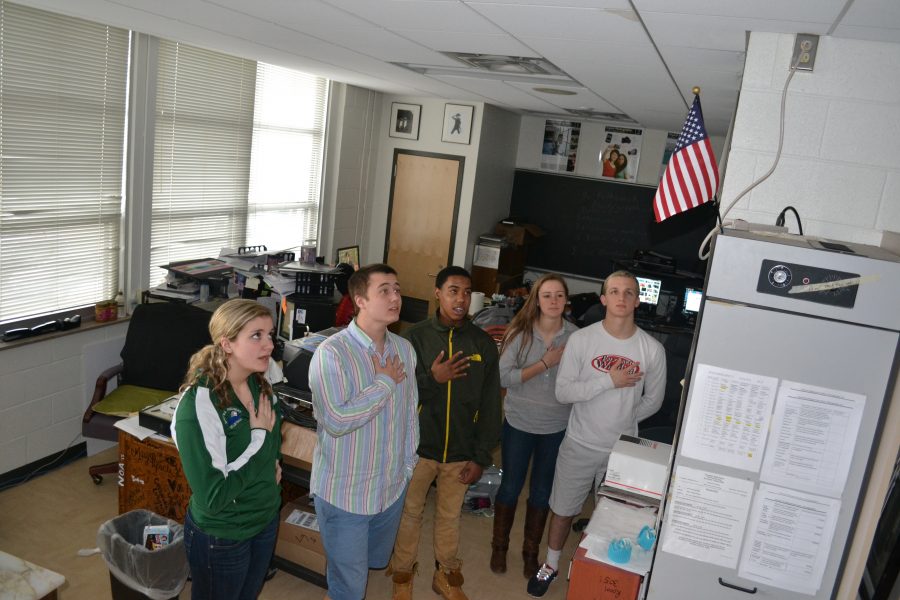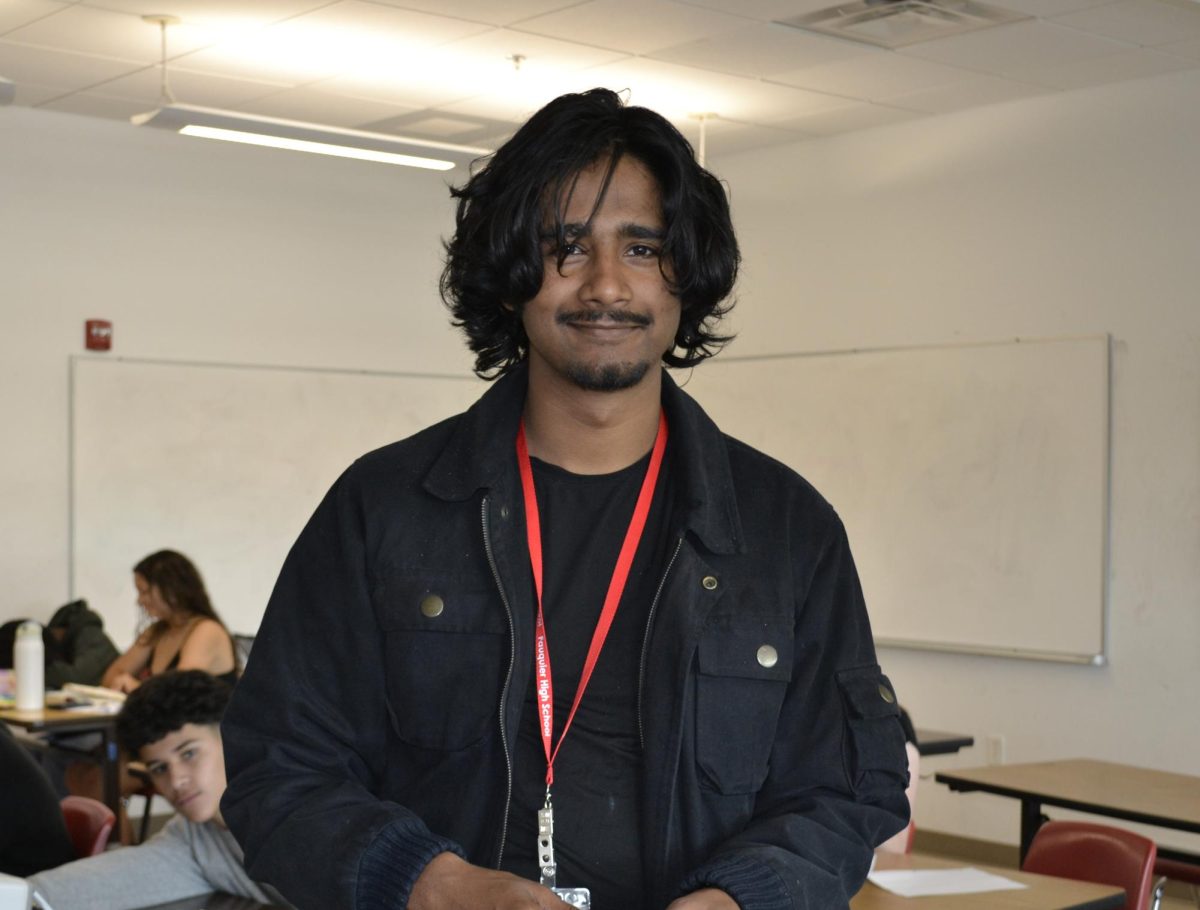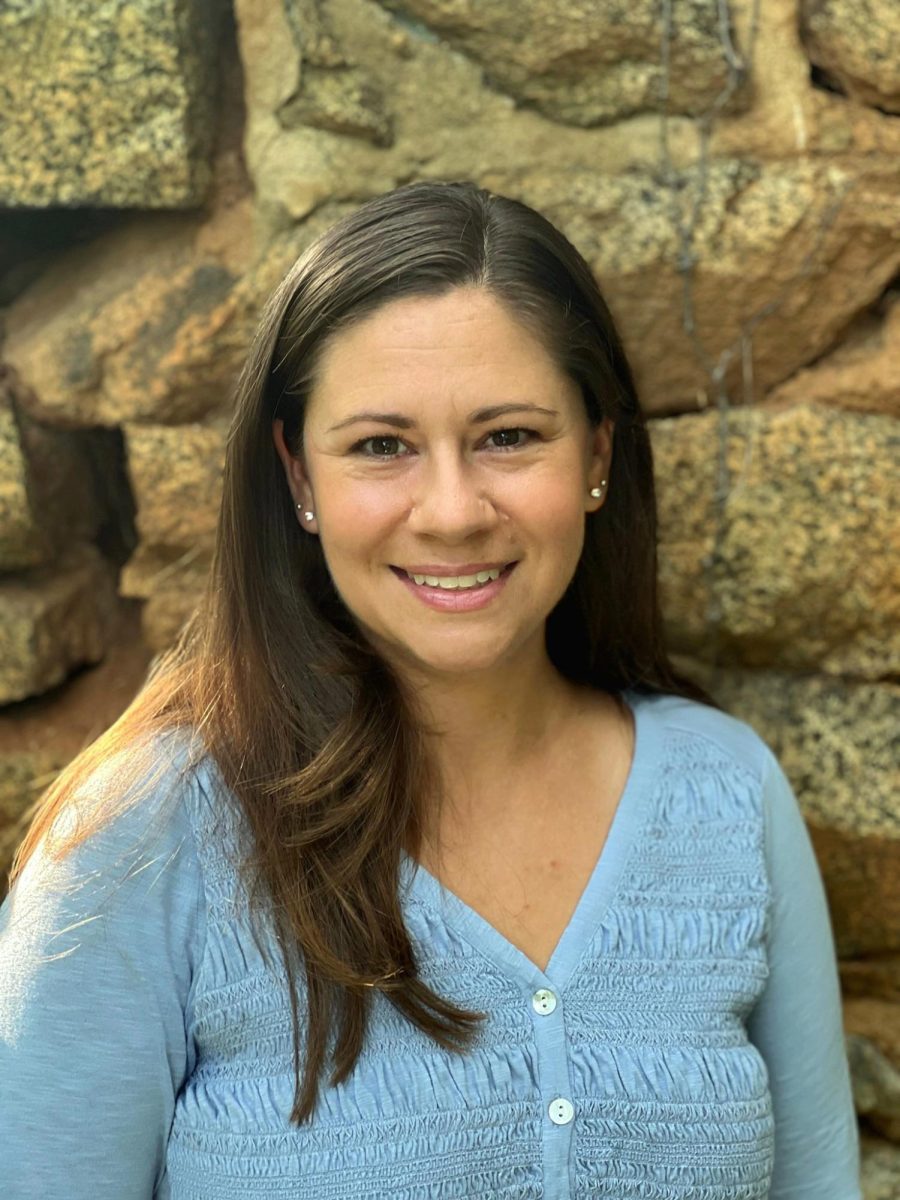In the state of Virginia all public school students begin the school day with Pledge of Allegiance, facing the flag, hand over heart or saluting if in uniform. If a student or his parent or guardian objects, the student may sit or stand quietly.
Some teachers and students at FHS think students should stand out of respect. Others feel the pledge isn’t an accurate representation of what the country stands for.When students don’t stand for the pledge, history teacher Liz Monseur is conflicted between respecting their views and honoring the sacrifices made by veterans.
“To me, standing for the Pledge of Allegiance, not even saying but standing, is a mark of respect,” Monseur said. “It’s not for the flag so much as for the sacrifices made by all people in the history of the nation. When I talk about sacrifice, I think largely of veterans. They were called to duty; they did it regardless of how they felt.”
Senior Anthony Campos sits during the recitation of the pledge every morning. His main reason is that it feels too compulsory. He says that by sitting, he is exercising his rights of freedom of speech.
“Everyone must show some sort of evidence that they have some patriotism for the country. I really don’t like that,” Campos said. “Another thing is that if you don’t stand then you seem unpatriotic, but I don’t agree with that.”
Campos says that another reason he doesn’t stand is because of the words “under God” which were added to the pledge in 1954.
“I don’t think people should pledge to that if they don’t believe in God or if they aren’t religious,” Campos said.
Campos started not saying or standing during the pledge in protest of laws against gay marriage.
“I feel like it’s lying to me when it says ‘freedom and justice for all,’” Campos said. “I just think, ‘It is a lie; I can’t stand for this.’”
Campos says the nation is getting better and improving but that many still do not have the equal protection of rights on which America was originally founded.
“I do love this country, and the amount of rights we have in comparison to other countries is what I really love,” Campos said. “But, I feel like if it really was worth standing up and pledging, our country would have everything accomplished, or at least a lot of things fixed.”
Senior Robert Morrison acknowleges that people can’t be required to say the pledge, but it makes him angry when they don´t stand.
“To not at least stand just seems disrespectful,” Morrison said. “Thinking about all the people that have protected our rights,
I just think it’s disrespectful for everyone serving in the military, sacrificing their lives for what they believe in, like our safety.”
Although the pledge may seem outdated to some, Morrison still thinks students honor the country’s founding principles.
“It’s what the country was founded onñ it’s what they believed back then,” Morrison said. “It’s just like the constitution – obviously some of the stuff isn’t applicable anymore, and I think people take it too literally; but a lot of it has to do with paying respect to the history behind it.”
Categories:
Pledge inspires debate
March 19, 2015
Story continues below advertisement
Tags:
Donate to The Falconer
Thanks for reading The Falconer. We're happy to provide you with award-winning student journalism since 1963, free from bias, conflicts of interest, and paywalls. We're able to continue with the generous support of our local community. If you're able, please consider making a donation. Any amount is incredibly helpful and allows us to pursue new and exciting opportunities.







